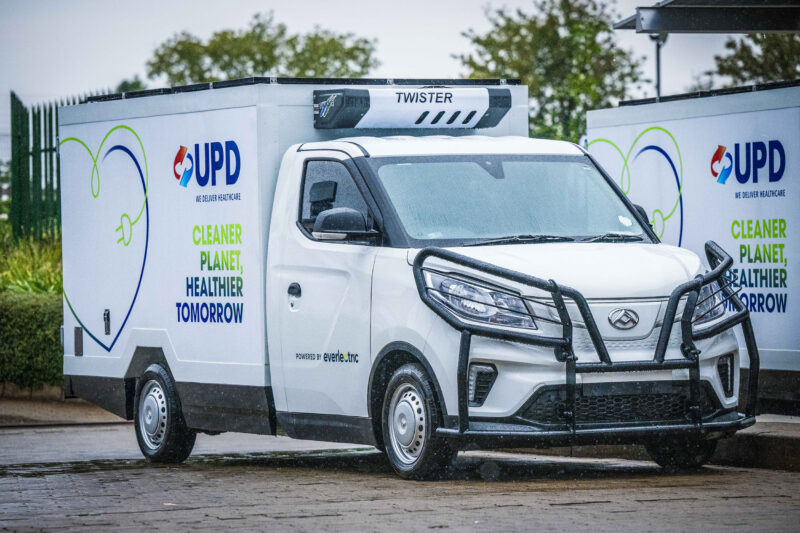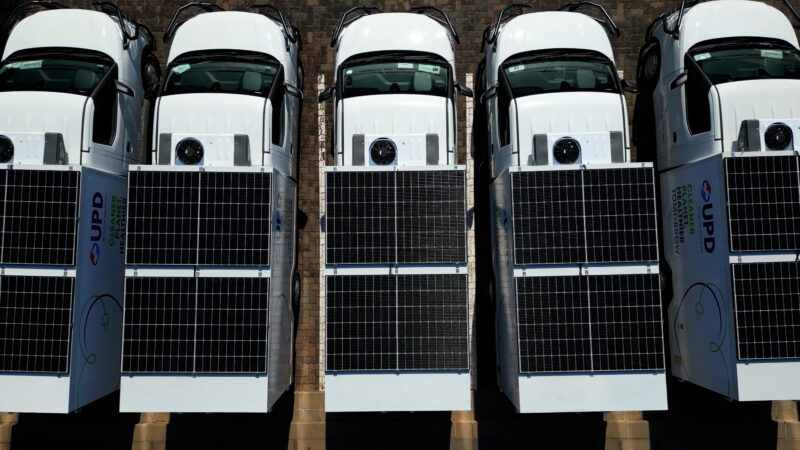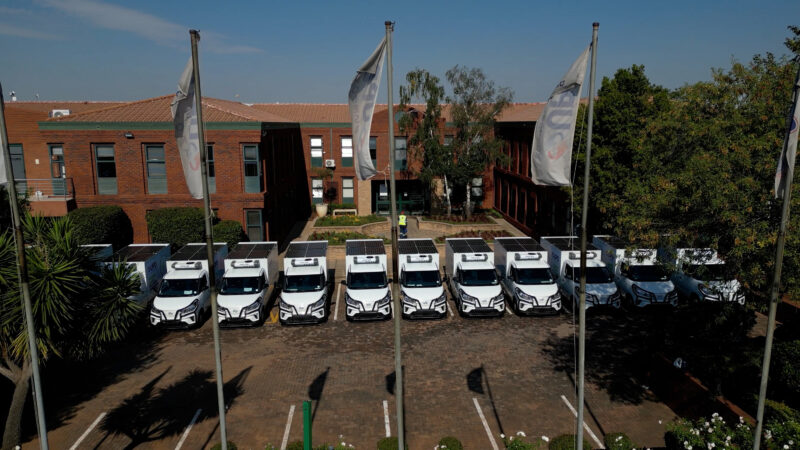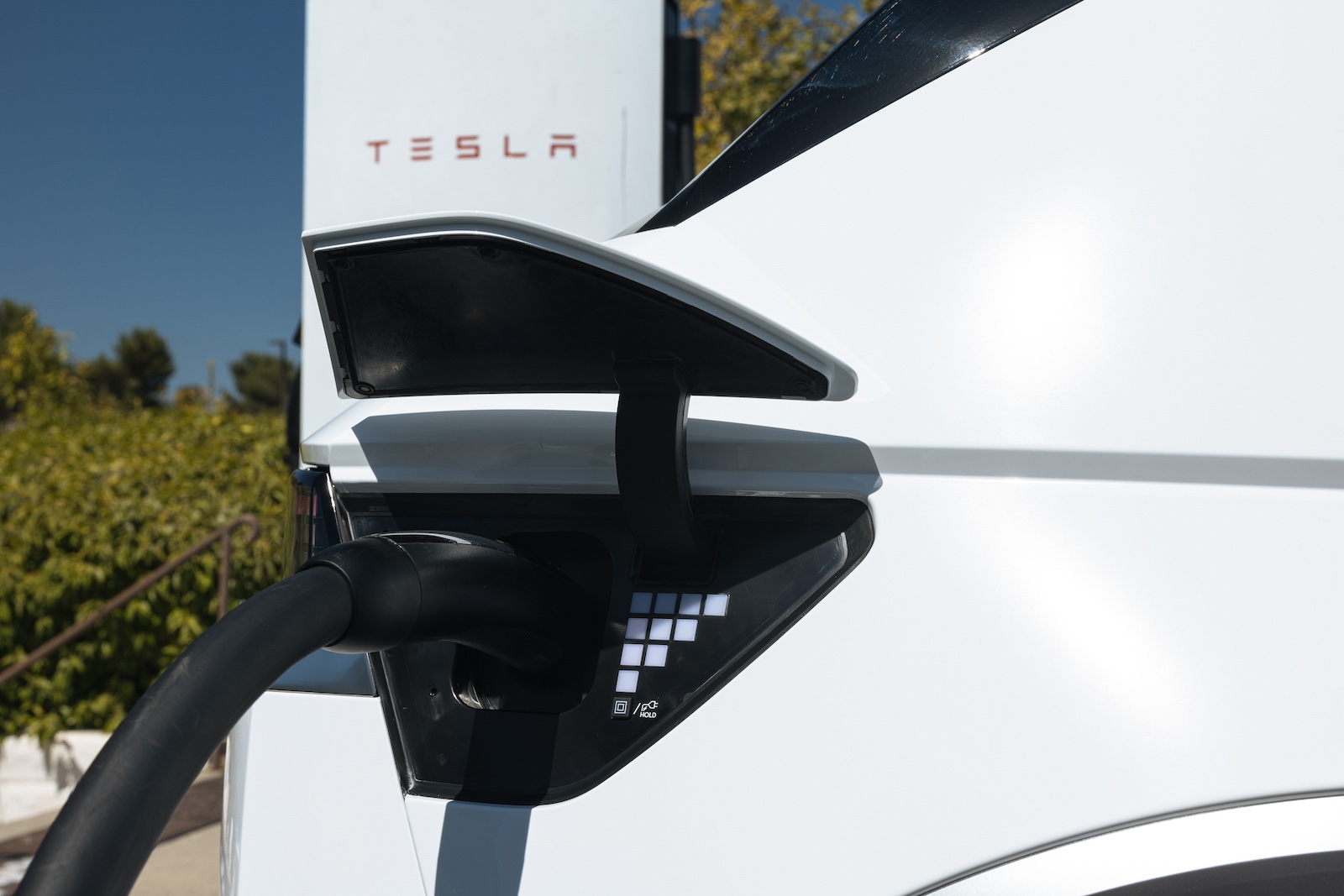
Sign up for daily news updates from CleanTechnica on email. Or follow us on Google News!
Last Updated on: 17th February 2025, 12:46 pm
South African companies are increasingly adopting electric vehicles as part of their fleets. One of the first to do so was South African retailer Woolworths when it rolled out a fleet of over 40 electric vans a couple of years ago. FedEx also introduced electric vans in South Africa. The Shoprite group introduced some heavy duty electric trucks about two years ago. The Shoprite Group has also introduced an interesting concept of solar PV panels on rooftops of delivery trucks to supplement the power requirements of auxiliary systems, such as on refrigerated trailers on diesel long haul trucks.
The solar panels on the refrigerated trailers allow operators to switch off the diesel engine when the trucks are stationary. For example, when loading or unloading at their stores and distribution centers, the solar panels power the refrigerated units. This results in significant savings from the diesel that would otherwise have been burned while idling to power the refrigeration units. Solar-powered units have been deployed in the Group’s fleet since 2017. You know what’s even cooler? Solar-powered refrigeration on battery-electric vehicles!
The Clicks Group and United Pharmaceutical Distributors (UPD) have partnered with Everlectric and Investec Sustainable Solutions to introduce South Africa’s first fleet of zero-emission, pharma-compliant electric vehicles (EVs) with solar-powered refrigeration. UPD is South Africa’s leading pharmaceutical wholesaler and supplies retail pharmacies, private hospitals, dispensing doctors, and retail health stores. The business provides the distribution capability for the Clicks Group’s integrated channel to the healthcare market. That also means its supply chain involves a lot of temperature-controlled environments. This led the company to come up with this new innovative solar-powered refrigeration on its brand new EV fleet. Rolling out in Gauteng and the Western Cape, the fleet of 42 Maxus eDeliver 3 panel vans, manufactured by SAIC Maxus and supplied by Everlectric, features an industry-first refrigerated cargo box powered entirely by solar energy.
The electric vans had their temperature-controlled cabins locally fitted and made from lightweight composite structural PVC — the same material used in super yachts. These innovative refrigeration boxes are 50% (200 kilograms) lighter than standard models, making them a greener solution. UPD says these refrigerated boxes, coupled with the solar-powered refrigeration system, make the vehicles ideal for urban pharma logistics. The vehicles will be owned by UPD drivers under an owner-driver scheme financed by Investec.
Trevor McCoy, Managing Executive of UPD, underscored the broader impact of the initiative: “Since launching in 2003, UPD’s owner-driver programme has supported the sustainable growth of independent drivers. What makes this rollout even more exciting is that 27% of the EVs will be owned by black female entrepreneurs, driving both transformation and sustainability in the logistics sector.”
Melanie Humphries, Head of Investec Sustainable Solutions, reaffirmed the bank’s commitment to empowering sustainability: “We are proud to partner with UPD in structuring a specialised financing solution for their owner-driver scheme – one that lays the groundwork for impactful change and propels South Africa forward through environmental consciousness, inclusive growth and resilience. This partnership represents true entrepreneurship, empowerment, and upliftment while exemplifying our commitment to sustainability, renewable energy, and the growth of small businesses.”
Everlectric CEO Ndia Magadagela highlighted the significance of the new fleet: “We are very excited to be powering UPD’s green logistics journey. We’ve built a pharma compliant logistics solution that not only decarbonises UPD’s fleet but is operationally excellent, economical and provides more payload — perfectly suited for South African conditions.”
Each Maxus eDeliver 3 has a 220–250 km range when fully charged, a one-ton capacity, and 6.5m³ of refrigerated space. The vehicles are expected to cut approximately one ton of CO₂ per month each, with the entire fleet projected to save 2.4 million liters of diesel and reduce CO₂ emissions by 6.3 million kilograms over its lifespan. They also operate at a quarter of the fuel cost of diesel alternatives and have lower maintenance expenses.
To support the fleet, UPD has further expanded its renewable energy infrastructure at its depot, adding 1,170 additional solar panels and several high-speed chargers, ensuring each EV starts the day fully charged and ready for delivery.
Clicks Group CEO Bertina Engelbrecht reinforced the company’s commitment to sustainable business practices: “Switching to electric vehicles isn’t just about reducing our carbon footprint — it’s about creating a smarter, greener way to deliver healthcare. This initiative reflects the group’s commitment to reducing our environmental impact, empowering small businesses, and building a healthier, more sustainable future.”
The Maxus eDeliver 3 electric panel vans were chosen because of their purpose-built light commercial EV nature. They feature lightweight composite materials, a laser-welded aluminum chassis, market-leading lithium-ion batteries, and extremely high efficiency. The Maxus eDeliver 3 is a multiple European and UK award-winning vehicle. Feedback from drivers on these EVs is that they perform well compared with their internal combustion engine equivalents. The acceleration is better, and they generally have more torque to enable them to carry heavy loads. They have regenerative braking, which assists the EVs to perform well in stop/start traffic conditions.
The refrigeration compartment is entirely powered by the van’s built-in solar panels. On the roof of the refrigeration compartment are 2 x 400W solar PV panels, providing a total output of 800Wp. The refrigeration system is accompanied by an inverter and a battery system (with an MPPT Charge controller and a 200AH lithium-ion battery) to support the refrigeration. This setup means the refrigerated compartment can run for up to two days without sunlight. The vehicle’s own battery (50.5kW traction battery) also be used to power the refrigeration unit if needed.
It’s great to see some good traction in electrification of fleets in South Africa. This market is largely untapped and there is a lot of potential in this market. EV adoption by commercial fleets will also help boost the overall electric vehicle market in South Africa. Fleet operations generally have set routes that can make charging pretty straightforward. Charging facilities can also be installed at depots or along the well known routes as well as the regular destinations for these vehicles. Exciting times ahead for fleet electrification in South Africa.
Images courtesy of Everlectric and UPD
Chip in a few dollars a month to help support independent cleantech coverage that helps to accelerate the cleantech revolution!
Have a tip for CleanTechnica? Want to advertise? Want to suggest a guest for our CleanTech Talk podcast? Contact us here.
Sign up for our daily newsletter for 15 new cleantech stories a day. Or sign up for our weekly one if daily is too frequent.
CleanTechnica uses affiliate links. See our policy here.
CleanTechnica’s Comment Policy








